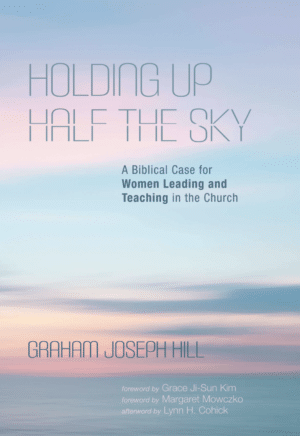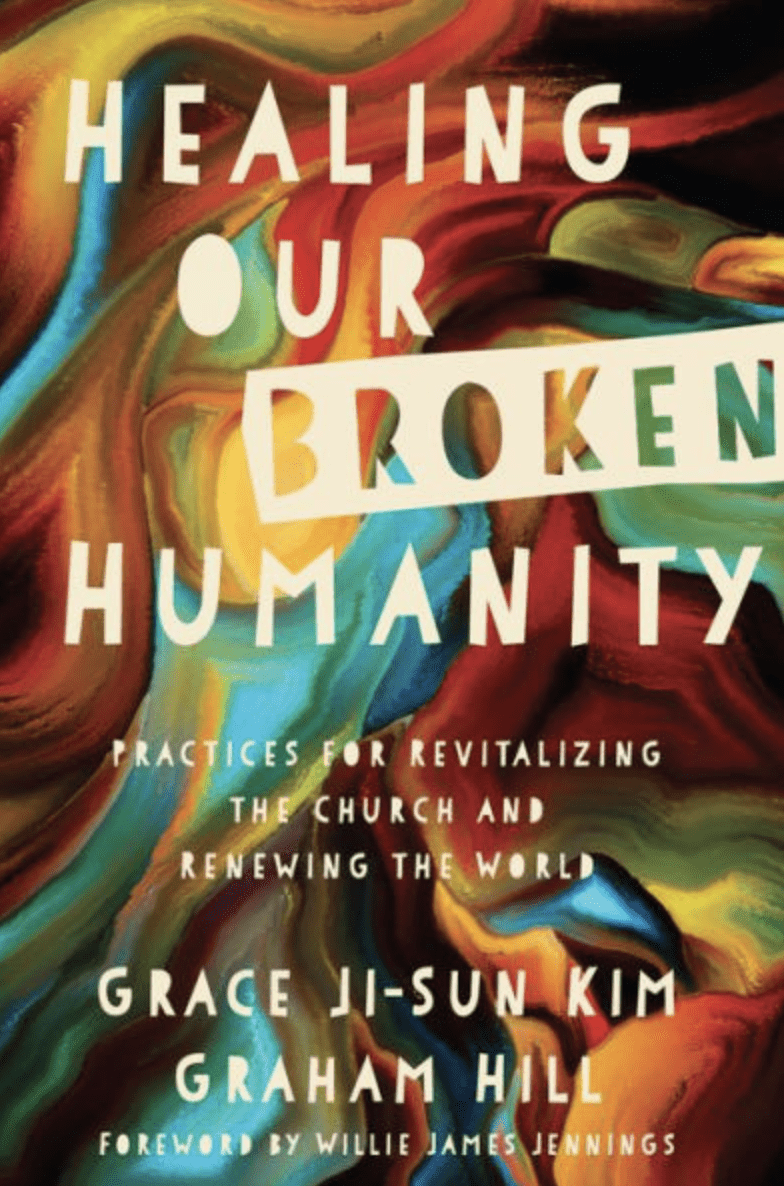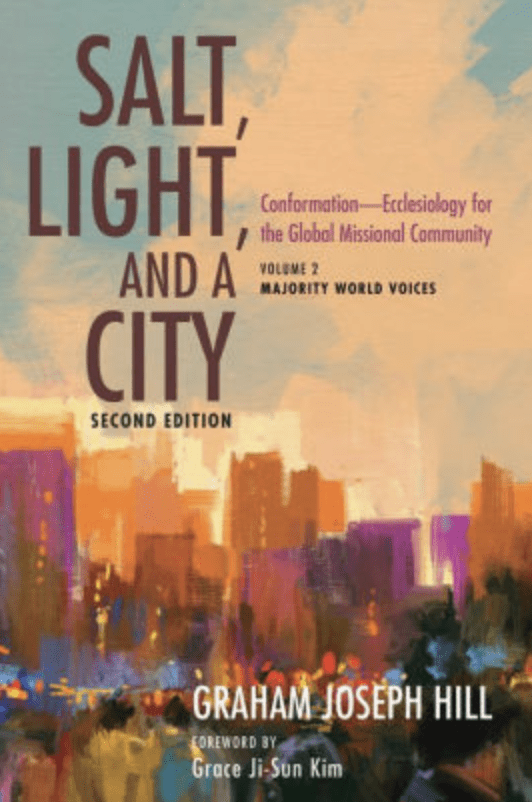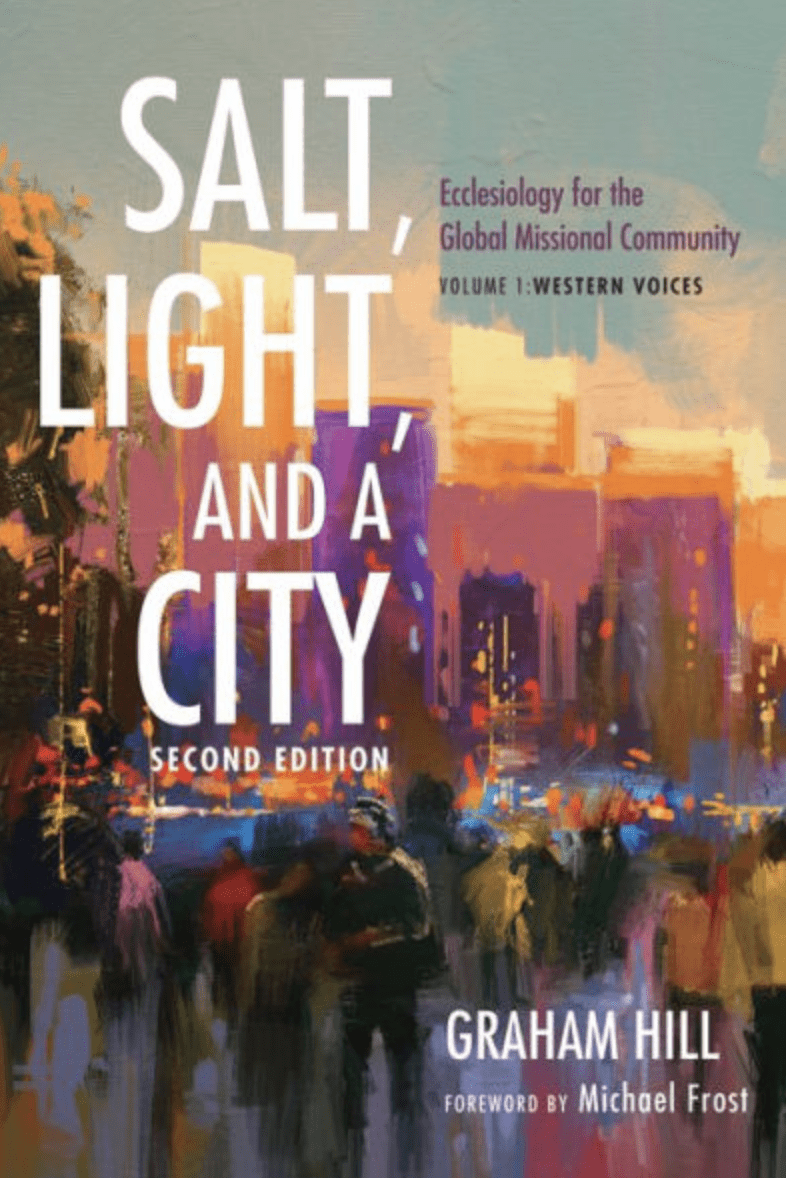Why we shouldn’t fear our bodies, sexuality, and creation
Human beings are created beings; formed by God in his image. We are bodily, sexual, relational, created beings; not self-sufficient, but profoundly relational. God meets us, relationally, in our bodies, in our sexuality, and in our world, and transforms us by his grace and power. So, it’s time for Christians to abandon fear of physical things, and embrace hope and life.
We are continually being created
God forms us from “dust”, not as a closed historical event, but as process. Not only does the Creator fashion us from “clay”; our entire lives and futures are a testimony to God’s work of divine renewal and creative genius. To be human is to be shaped by God from nothing, and to be birthed into a process of being called and created, and loved and desired. God lovingly invites us to glorify and witness to him in our bodies, in our world, and in history. Our bodies, sexualities, and world are a gift from God.
We are continually being created, and so are firmly located within the created order.
We experience the parental love of God in our bodies
Nicholas Lash, in Believing Three Ways in One God, writes: “What makes the doctrine of createdness good news is the discovery that God makes the world ‘parentally.’” We experience the parental nature and love of God in our createdness and embodiment. God continually forms and sustains creation parentally. Human beings are a part of creation, enjoying the filial care and concern of the Creator.
Although we are often deluded by visions of grandeur, self-sufficiency or transcendence, we are not self-made. We are continually created out of the abundance of God’s love and grace. We are formed by God and located within the world. So, we are interdependent, not merely sharing the origins of other created things, but being woven by God into the fabric of the created order in mysterious and loving ways.
Our sexuality testifies to God’s presence, creativity, and love
Human sexuality testifies to God’s presence in our lives, and his live for our whole persons, including our bodies. This is why sexuality and spirituality are so deeply connected.
We share the realities of gender, reproduction, sexual appetite, and sexual differentiation with other living creatures. Like other living things, these elements of sexuality are subject to many things. These include abuse, environmental factors, power and gender relationships, genetic influences, time and space, socialization, fear and intimidation, pleasure and freewill, individuality, ambiguity, fluidity, and mystery.
Our sexuality witnesses to our location within the created order, and our reflection of the image of God. This sexuality is a mirror of the web of relationships that all created things share.
So, the dysfunctional urge to live as “non-sexual,” spiritual beings (I’m not referring to celibacy here), or, conversely, to indulge in self-serving, impersonal sexual practices, are expressions of denial. Both deny the relational essence of our being and bodies. Both separate us from authentic intimacy and communion with the Other and with others. Both ends of the spectrum are dualistic, failing to recognize our relational embeddedness in creation and in God.
Sarah Coakley says that in Christian theology, notions of Trinity and prayer and sexuality/desire integrate.[1] The renewed enthusiasm for trinitarian theology arose in connection with renewed prayer. As theologians explored prayer, they became convinced about the power of trinitarian faith for life, church, mission, and spirituality. They also rediscovered the inextricable connections between sexual desire and the desire for God.
In trinitarian prayer we encounter “the profound entanglement of our human sexual desires and our desire for God; and in any prayer of the sort in which we radically cede control to the Spirit there is an instant reminder of the close analogue between this ceding (to the trinitarian God), and the ekstasis of human sexual passion. Thus it is not a coincidence that intimate relationship is at the heart of both matters.”[2]
Sarah Coakley wants to weave theologies of Trinity and prayer and sexuality and desire together. This way, we see the connections between sexuality and spirituality afresh.
The church needs a vibrant contemporary theology of sexuality and desire—one rooted in prayer and the Trinity.[3] “It is the task of rethreading the strands of inherited tradition on these three matters in such a way that enacted sexual desire and desire for God are no longer seen in mutual enmity . . . Rather, we are seeking a renewed vision of divine desire (a trinitarian vision, I suggest) which may provide the guiding framework for a renewed theology of human sexuality—of godly sexual relations—rooted in, and analogously related to, trinitarian divine relations.”[4]
Sarah Coakley says, “we need to turn Freud on his head. Instead of thinking of ‘God’ language as really being about sex (Freud’s reductive ploy), we need to understand sex as really about God, and about the deep desire that we feel for God—the clue that is woven into our existence about the final and ultimate union that we seek.”[5]
Desire originates with God. God is a desirous God, not because he lacks anything, but because desire is part of the divine nature. Coakley says, “desire is an ontological category belonging primarily to God, and only secondarily to humans as a token of their createdness ‘in the image.’”[6]
God’s desire originates in his trinitarian being. Our human desire emerges from “that plentitude of longing love that God has for God’s own creation and for its full and ecstatic participation in the divine, trinitarian, life.”[7]
If human love is to reflect divine, trinitarian love, then it must have certain qualities. These include self-giving, “equality of exchange,” and desire for the well-being of the one loved. This love must respect the distinctiveness yet interdependence of the other, and reject all forms of abuse or control.[8]
The Spirit intensifies, chastens, and purifies human desire. This way, our desire mirrors and reveals divine, trinitarian desire.[9]
The cross transforms and purifies our desire.[10]
Our lives unfold in the theatre of the body, world, and history
As created beings the created order (or the “world”) is the theatre in which our lives unfold—sexuality, work, family, commitments, spirituality, politics, society, suffering, ecology, achievement, failure, the creative arts, and so on.
Throughout history, the church’s response to this location within the world and the body has been mixed, hostile, ambiguous, and, sometimes, “gnostic.” Religious and spiritual movements have moved between the poles of the deification of the sensual and the repulsion of all things “unspiritual.” They have sought to help believers escape the “worldly” realities of birth, death, sexuality, work, pain, and society. But this denies the biblical witness.
The Incarnation of Jesus affirms creation and our bodies
But, in the Incarnation of Jesus Christ we are affirmed as created beings. In the Incarnation, the created order is honored. God comes into our created context to redeem and heal, affirming the value of created being and substance, and embracing humanity as part of creation. In the Incarnation, Jesus Christ reveals his ongoing relationship to creation, including humanity, and his willingness to engage with the contours of creation—these being time, space, and matter.
Both the immanence and transcendence of Christ (revealed in the Incarnation and the resurrection) liberate, honor, and grace our human nature and bodies. We experience grace, freedom, and dignity, not as unphysical persons, but as physical, sexual, “flesh and blood” persons in relationship.
In assuming human form, God declared creation to be good (yet broken), and humanity to be of incredible worth (yet rebellious). It isn’t just our “spiritual beings” that are transformed and redeemed. Our salvation is in our humanity, sexuality, bodiliness, and physicality. Jesus Christ redeems and transforms all creation. He renews our understanding of the world and our bodies. Finally, in the age to come, he transforms our bodies, and creates a new heaven and earth.
There is, therefore, a theological and practical unity between creation and Incarnation, and between creation and eschaton. We freely share in this unity, in Jesus Christ. God’s ongoing creative activity and incarnational presence sustain a Christ-dependent world.
This world is in real relationship with the Divine, even though the Creator is clearly (and radically) distinct from it. God is in ongoing relationship with creation, which includes humanity. He is, and always remains, the Creator.
Moreover, all things are created and sustained by Jesus Christ; God become flesh.
We are recipients of God’s ongoing creative processes, goodness, love, and presence; created to glorify him
Creation, including humanity, does not exist in autonomy from its Creator. Instead, we are recipients of God’s ongoing creative processes, goodness, love, and presence. And so, humanity, as part of creation, “gives glory to God.”
We are created to glorify God, and enjoy intimate communion with God, others, and creation. This is our ultimate purpose. God manifests his glory in and beyond creation. But he does not neglect or distain creation and bodiliness. Instead, creation (past, present, and future) is the place where God’s glory is revealed and consummated.
You and I, as part of creation, are compelled to glorify and love God along with the rest of creation.
We share the history of God’s relationship with the world, and are called to care for creation
As beings that are part of creation, we share, along with the rest of creation, the history of God’s relationship with this world. As creatures made in the image of God, we are uniquely charged with the care of creation.
We are to treat the rest of creation with the honor that reflects how our identity and destiny are enmeshed with it, and redeemed (by the person and work of Christ) along with creation.
Human beings don’t exist in transcendent, subduing, monarchical relationship to the rest of creation. Humanity, as part of creation, participates, communes, communicates, loves, repents, and breathes in the mysterious interrelationships of the created order. We find salvation and divine life through the incarnational presence of God in this theatre.
We must reject a dualistic, gnostic, dominating view of creation
A dualistic, gnostic, and subjugating understanding of creation is nonsense and, ultimately, self-destructive. Human history testifies to this (nuclear proliferation, ecological destruction, unconscionable genetic experimentation, loss of biodiversity, global warming, and so on).
We cannot escape the consequences of our actions toward the rest of creation. This is precisely because humanity is a fundamental part of creation. And it is because God freely engages in a loving parental relationship with creation.
Since humanity is part of creation, the dimensions of world, body, and history are closely related in a Christian understanding of humanity.
We are hope enfleshed
As created beings, humans are embodied in skeletal, muscular, respiratory, nervous, and cardiovascular systems. We are hope enfleshed. Our bodies are broken and dying. But they point to their Creator; and the redemption of our bodies and of creation is our ultimate hope.
This embodiment is in the world (we are immersed in structural and systemic realities—political, economic, social, religious, and the like). The theatre upon which this drama is played is human history (time, space, matter, spirit, and body entwined in this cosmic drama, since the creation of the world).
Since this is the case, dualism is in vain. The body and the soul are one. The body is enlivened and given form by the soul (the breath of God), and the soul expresses itself through the body. (Of course, this kind of language runs the risk of separating body and soul too much, since they are, in fact, inextricably entwined, and transformed as one by Christ at the end of the age).
As a soul/body unity, we are located ontologically in the world. There is there is no other arena in which human beings “live and breathe and have their being.” We have this life in Christ, and in his world.
We embrace our bodies, sexuality, and physical lives
The church must not encourage people to neglect the body and society (world). Such doctrines perverse and gnostic. They deny people the chance to live full and rich lives.
As inextricably part of creation, human beings are soul and body, within history and society.
To compel people to see themselves as conflicted beings in constant battle with their bodies and the world—or as spiritual beings that need freedom from the body and the world—is to deny the redemptive presence of the Spirit in creation and in our bodies.
Sure, these things are broken and sinful. They groan for the release and redemption that only Christ can bring.
But, while we are fully aware of creation’s brokenness, we are also people of hope.
Paul puts it this way, “For the creation waits in eager expectation for the children of God to be revealed. For the creation was subjected to frustration, not by its own choice, but by the will of the one who subjected it, in hope that the creation itself will be liberated from its bondage to decay and brought into the freedom and glory of the children of God. We know that the whole creation has been groaning as in the pains of childbirth right up to the present time. Not only so, but we ourselves, who have the first fruits of the Spirit, groan inwardly as we wait eagerly for our adoption as his children, the redemption of our bodies. For in this hope we were saved. But hope that is seen is no hope at all. Who hopes for what they already have? But if we hope for what we do not yet have, we wait for it patiently.” (Romans 8:18–25)
We are invited by Christ into his mission to redeem all things—including bodies, creation, and history
Disciples of Jesus have no reason to fear our bodies, our sexuality, and our world.
We are invited by Jesus to embrace a new imagination; a way of seeing body, world, and history afresh. We are called by Jesus into his mission to redeem and transform all things. This is our hopeful expectation—that we participate (by grace) in God’s redeeming and restoring activity in our bodies, in creation, in our sexual expressions and identities, in our relationships and societies, and in our world.
God’s extravagant and unmerited grace and love are poured out on humanity in Christ. And this intimate redemption is manifest in our bodies, in the world, and in history.
Our bodies, our world, and our sexuality are incomplete, fractured, and destitute, but God’s grace restores all things
We are incomplete, fractured, and destitute without grace. The theatres of body, world, and history are the soil where God reveals his gratuitous love, forgiveness, and liberation.
Grace presupposes and redeems human nature and bodiliness. But (as the Incarnation shows us), grace also commends these things, and makes us think about them afresh and differently.
Grace is subversive. It reorients our perspectives, upends our theologies, and reshapes our histories. Grace infuses our bodies, our histories, and our worlds. It is the grace of the spirit and truth. It is the grace of the gospel.
Discipleship to Christ is about following him in the body and into the world. It is to be in the grip of grace. It is to be moved by Christ’s Spirit toward repentance and joyful union with God. And it is to be drawn into communion and intimacy with him, in our bodies, in our sexualities, and in creation.
Through grace, our bodies yearn for God (whether we recognize this nor not).
Through grace, God infuses a broken and wounded and conflicted world with hope for more.
Through grace, our histories testify to the radical protest not only against death and defeat, but also against the inadequacy of material acquisition and the futility of lives lived at a breathtaking and soul-destroying pace.
So, grace finds expression in creation, communities, and bodies. God reveals grace in bodies, cultures, societies, and histories. These are often arenas for abuse, conflict, sin, and brokenness. But they are also filled with the surprising, redemptive presence of the Spirit.
Graham Hill
Dr Graham Hill is the Founding Director of The GlobalChurch Project – www.theglobalchurchproject.com. He’s the author of “GlobalChurch: Reshaping Our Conversations, Renewing Our Mission, Revitalizing Our Churches” (IVP, 2016), and 3 other books.
© 2016 All rights reserved.
Copying and republishing this article on other Web sites, or in any other place, without written permission is prohibited.
References:
Nicholas Lash, in Believing Three Ways in One God. London: SCM, 1992, p.43.
[1] Coakley, “Living into the Mystery of the Holy Trinity,” 223.
[2] Ibid. 224.
[3] See: Coakley, The New Asceticism, Chapter 1.
[4] Coakley, “Living into the Mystery of the Holy Trinity,” 224.
[5] Ibid., 230. See also Coakley’s interview in Shortt, God’s Advocates, Chapter 4.
[6] Coakley, God, Sexuality and the Self, 10.
[7] Ibid.
[8] Coakley, “Living into the Mystery of the Holy Trinity,” 231.
[9] Coakley, God, Sexuality and the Self, 13.
[10] See: Coakley, The Cross and the Transformation of Desire.
Want to get your hands on more, see our subscriptions
Buy Graham Joseph Hill’s books here:













0 Comments